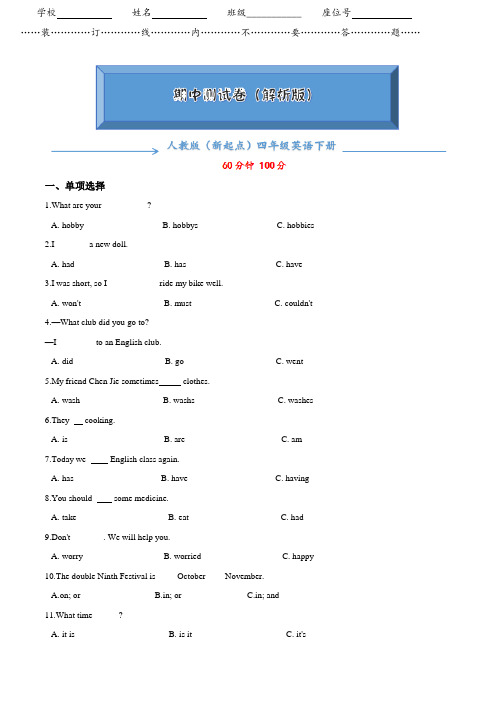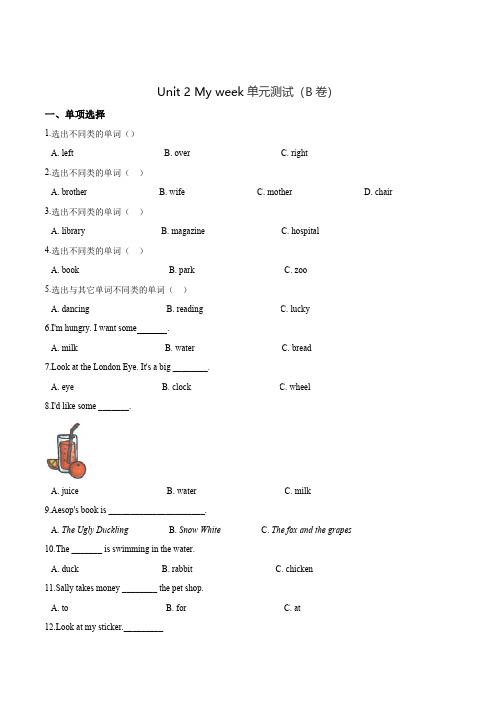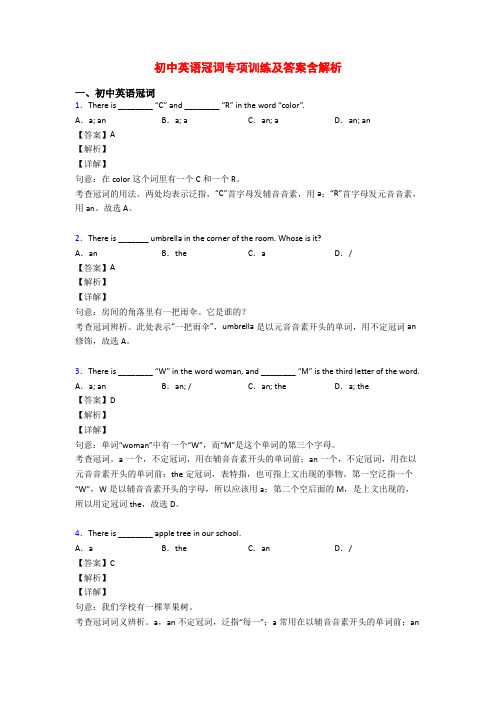Word tree,单词树,辨析?
构建the word family tree,让英语词汇之树枝繁叶茂

构建the word family tree,让英语词汇之树枝繁叶茂作者:潘正鸿来源:《中学课程辅导·教学研究》2020年第05期摘要:词汇是人类思维活动和思想交流的最小语言单位,学生只有掌握了较多的词汇,才能更好地学习英语语法、句型、写作等内容。
构建英语词汇之树,可以帮助学生扩大词汇量,巩固所学单词,并将词汇用法融会贯通。
关键词:the word family tree;词汇类别;一词多义;词汇相似性中图分类号:G632.0文献标识码:A文章编号:1992-7711(2020)03-0062英语是全世界运用最广泛的一门语言,随着我国经济文化的发展,中国与世界各国的交流越来越频繁,英语受到国人普遍重视,已经成为教学体系中不可缺少的一部分。
词汇是一门语言的基础,很多学生为了学好英语,在词汇上都花费了大量的时间,然而实际的学习效果却并不尽如人意。
词汇量不足,直接影响着学生听力、阅读以及写作水平。
为提高学生的英语水平,教师必须设法扩大学生的词汇量,确保他们能精确和透彻地理解所学词汇并能准确地使用。
构建英语词汇之树,可以帮助学生扩大词汇量,巩固所学单词,并将词汇用法融会贯通。
一、依据词汇类别,构建the word family tree归类就是把学过的、正在学的或即将要学的英语词汇从各个方面进行有规律的归类,找出词汇与词汇之间的各种联系,创造尽可能多的联系条件,使学生能由此及彼,成组成串地记忆词汇。
比如教授人教新目标七年级上unit 5的词汇时,以球类运动为根,以运动项目名称及所需球类为枝干,构建the word family tree。
球类运动项目:tennis,ping- pong,soccer,volleyball,basketball;所需球类:tennis ball,ping-pong ball,soccer ball,volleyball,basketball。
这样,学生就能很好地区分运动项目的名称和球类名称,在使用中不至于出错。
(完整word版)新版pep五年级英语上册1—6单元单词与句子汇总,推荐文档

(完整word版)新版pep五年级英语上册1—6单元单词与句⼦汇总,推荐⽂档2014新版pep五年级英语上册1—6单元单词与句⼦汇总Unit1 What he like重点单词 :old 年⽼的young年轻的funny滑稽的kind 和蔼的strict严格的polite 有礼貌的 clever 聪明的shy 害羞的hard-working ⼯作努⼒的helpful有⽤的will 将要know 知道 robot机器⼈finish 完成he’s=he is 他是who’s=who is 谁是Mr.先⽣ Miss ⼩姐sometimes有时重点句⼦:1、A:Ms Wang will be our new Chinese teacher.王⼥⼠是我们新语⽂⽼师B:What’s she like?她怎么样?A:She’s very kind?她很和蔼B:Is she strict?她严格吗?A:Yes, sometimes.是的,有时候.2、A:Do you know Mr. Young?你认识杨先⽣吗?B: No, I don’t. (否定回答)不,不认Yes, I do. (肯定回答)是的,我认识。
3、A:Who is your math teacher? 谁是你的数学⽼师?B:Mr Li李先⽣。
4、A:Is she strict? 她严格吗?B:Yes,she is.(肯定回答)是的,她严格。
No,she is not.(否定回答),不严格。
Unit2 My week重点单词:Monday 星期⼀Tuesday星期⼆Wednesday星期三 Thursday星期四 Friday星期五Saturday星期六Sunday星期⽇weekend 周末wash 洗wash my clothes洗⾐服watch看watch TV看电视do做do homework做家庭作业do housework做家务read读read books读书play踢、玩play football 踢⾜球 often通常cooking烹饪tired疲惫的sport体育运动should 应该 every每⼀个schedule ⼯作计划 day⼀天重点句⼦:1、A:What do you have on Friday 星期五你有什么课?B:I have a PE class我有体育课2、Do you often play sports?你常常做运动吗?No,I don’t.I don’t like sports不是.我不喜欢做运动3 A: What do we have on Wednesdays ?星期三我们都有什么课?B: We have English 、 science and computer on Wednesd ays.我们星期三有英语、科学和计算机。
英语语言学树型图详细讲解

树形图详细讲解1. Indicate the category of each word in the following sentences.a) The old lady suddenly left.Det A N Qual Vb) The car stopped at the end of the road.Det N V P Det N P Det Nc) The snow might have blocked the road.Det N Aux Aux V Det Nd) He never appears quite mature.N Qual V Deg A2. The following phrases include a head, a complement, and a specifier. Draw the appropriate tree structure for each.a) full of peopleAPA P Nfull of peopleb) a story about a sentimental girlNPNP PPDet N P NPDet A Na story about a sentimental girlc) often read detective storiesVPQual V NPA Noften read detective storiesd) the argument against the proposalsNPNP PPDet N P NPDet Nthe argument against the proposalse) move towards the windowVPV PPP Det Nmove towards the window3. Draw phrase structure trees for each of the following sentences.a) The jet landed.InflP(=S)NP Infl VPDet N Pst VThe jet landedb) Mary became very ill.InflP(=S)NP Infl VPN Pst V APDeg AMary became very illc) What will you talk about?CPNP C SN Infl NP Infl VPVP NPV P NSNP VPDet N Aux V NPDet NThe apple might hit the manORInflP(=S)NP Infl VPDet N V NPDet NThe apple might hit the mane) He often reads detective stories.SNP VPN Qual V NPA NHe often reads etective storiesORInflP(=S)NP Infl VPPresN Qual V NPA NHe often reads etective stories4. The following sentences contain modifiers of various types. For each sentence, first identify the modifier(s), then draw the tree structures.a) A frightened passenger landed the crippled airplane.InflP(=S)NP Infl VPDet A N Pst V NPDet A NA frightened passenger landed the crippled airplaneb) A huge moon hung in the black sky.InflP(=S)NP Infl VPDet A N Pst V PPP NPDet A NA huge moon hung in the black skyc) An unusual event occurred before the meeting.InflP(=S)NP Infl VPDet A N Pst V PPP NPDet NAn unusual event occurred before the meetingd) A quaint old house appeared on the grassy hill.InflP(=S)NP Infl VPDet A NP Pst V PPA N P NPDet A NA quaint old house appeared on the grassy hill5. The following sentences all contain conjoined categories. Draw a tree structure for each of the sentences.a) Jim has washed the dirty shirts and pants.InflP(=S)NP VPN Aux V NPDet A NPN CON N Jim has washed the dirty shirts and pantsORInflP(=S)NP VPN Infl V NPDet A NPN CON NJim has washed the dirty shirts and pantsb) Helen put on her clothes and went out.SNP VPN VP CON VPVP NP V AdvV P Det NHelen put on her clothes and went outORInflP(=S)NP Infl VPN Pst VP CON VPVP NP V AdvV P Det NHelen put on her clothes and went outc) Mary is fond of literature but tired of statistics.SNP VPN VP CON VPVP NP VP NPV A P N V A P NMary is fond of literature but (is) tired of statistics ORInflP(=S)NP Infl VPN Pres VP CON VPVP NP VP NPV A P N V A P N Mary is fond of literature but (is) tired of statisticsd) The detective went out and the mysterious man came in.SS CON SNP VP NP VPDet N V Adv Det A N V AdvThe detective went out and the mysterious man came ine) Crusoe knows that spring will come and the snow will melt.SNP VPN V C SS CON SNP VP NP VPN Aux V Det N Aux V Crusoe knows that spring will come and the snow will melt6. The following sentences all contain embedded clauses that function as complements of a verb, an adjective, a preposition or a noun. Draw a tree structure for each sentence.a) You know that I hate war.SNP VPCPN V C SNP VPN V NPNYou know that I hate warOR CPC InflP(=S)NP Infl VPCPN Pres V C SNP VPN V NPNYou know that I hate warb) He said that Tom asked whether the class was over.SNP VPCPN V C SNP VPCPN V C SNP VPDet N VL A He said that Tom asked whether the class was overc) Gerry can’t believe the fact that Anna flunked the English exam.SNP VPN VP NPCPAux Neg V NP C SDet N NP VPN V NPDet A N Gerry can not believe the fact thatAnna flunked the English examd) Chris was happy that his father bought him a Rolls-Royce.SNP VPCPN VL A C SNP VPDet N V NP NPN Det NChris was happy that his father bought him a Rolls-Roycee) The children argued over whether bats had wings.SNP VPCPDet N VP C SV P NP VPN V NPNThe children argued over whether bats had wings7. Each of the following sentences contains a relative clause. Draw the deep structure and the surface structure trees for each of the sentences.a) The essay that he wrote was too long.Deep structureCPC SNP VP Det N CP V APC S Deg PNP Infl VPN V NPNThe essay he wrote that was too longSurface StructureCPC SNP VP Det N CP V APC S Deg PNP NP Infl VPN N Pst V NPNThe was too longb) The dog that he keeps bites.Deep structureCPC SNP VP Det N CP VC Infl SPres NP VPN V NPNThe dog he keeps that bitesSurface StructureCPC SNP VP Det N CP VC SNP NP Infl VPN N Pres V NPNThe dog bitesc) Herbert found the man she loved.Deep structureCPC SNP VPN Infl V NPCPDet N C SNP Infl VPNPN VNHerbert found the man she loved whoSurface StructureCPC SNP VPN Infl V NPCPDet N SCNP Infl VPNP NPN VN N Herbert found thed) The girl whom he often quarrels with majors in linguistics.Deep structureCPC SNP VPDet N CP V PPP NPC Infl SNNP VPPPN Qual VP NPV P NThe girl he often quarrels with whom majors in linguisticsSurface StructureCPC SNP VPDet N CP V PPP NPC SNNP NP Infl VPPPN N Qual VP NPV P NThe girl majors in linguistics8. The derivations of the following sentences involve the inversion transformation. Give the deep structure and the surface structure trees for each of these sentences.a) Would you come tomorrow?Deep structureCPC SVPNP AdvPN Infl V Advyou would come tomorrowSurface structureCPC SVPNP AdvPInflN Infl V Advcome tomorrowb) Can you pass me the newspaper?Deep structureCPC SVPNP NP NPN Infl V N Det Nyou can pass me the newspaperSurface structureCPC SVPInfl NP NP NPN Infl V N Det Npass me the newspaperc) Should the students report the incident?Deep structureCPC SVPNP NPDet N Infl V Det Nthe students should report the incidentSurface structureCPC SVPInfl NP NPDet N Infl V Det Nreport the incidentd) What did you eat for lunch?Deep structureCPC SVPNP PPNP NPN Infl V PN Nyou did eat what for lunchSurface structureCPNP C SVPInfl NP PPNP NP N N Infl V PN Nfor lunche) Who should this be reported to ?Deep structureCPC SVPNP PPVP NPN Infl V V PNthis should be reported to whomSurface structureCPNP C SVPN Infl NP PPVP NPN Infl V V PNf) What was Helen bringing to the party?Deep structureCPC SVPNP PPNP NPN Infl V PN Det NHelen was bringing what to the partySurface structureCPNP C SVPN Infl NP PPNP NPN Infl V PN Det Nto the party21。
三年级下册英语专项练习 单词拼写与选词填空 期末复习∣牛津译林-word

牛津译林版 2019-2019 学年小学英语三年级下册期末复习(单词拼写与选词填空)一、根据图片将单词补充完整。
r_ _erpen_i_ c_ _ec_a_ons_h_ol_a_________ r_b_er二、单词拼写(词汇运用)1.This ________( 不是) my pencil.2.________ (那) is a ________( 书包).3.________ ________ ( 那是) a ruler?4.He ________ (有) two books.5.Please don't ________ ( 吃) my cake .6.Please open the________ ( 门).7.He ________ (能) play football.8.Please________ (进来) .9.My ruler is ________( 在…里面) the schoolbag.10.Susan is ________( 在…旁边)the window.11.This is our ________ ( 黑板).12.________(听) to me carefully.三、选词填空(词汇运用)1.—________(what/who/where) about a pen? —No, thank you.2.Listen ________ ( to / for ) me , please .3.— I'm ________, Mr Green . ( sorry / please )— ________ in ,Mike . ( Come / Open )4.Stand ________ ( up / down ) , please .5.________ ( Not / Don't ) look at the blackboard .6.选词填空。
人教版(新起点)四年级英语下册《期中试卷》(word版附答案)

学校姓名班级___________ 座位号……装…………订…………线…………内…………不…………要…………答…………题……一、单项选择1.What are your __________?A. hobbyB. hobbysC. hobbies2.I _______ a new doll.A. hadB. hasC. have3.I was short, so I ___________ ride my bike well.A. won'tB. mustC. couldn't4.—What club did you go to?—I ________ to an English club.A. didB. goC. went5.My friend Chen Jie sometimes clothes.A. washB. washsC. washes6.They cooking.A. isB. areC. am7.Today we English class again.A. hasB. haveC. having8.You should some medicine.A. takeB. eatC. had9.Don't _______. We will help you.A. worryB. worriedC. happy10.The double Ninth Festival is ____ October ____November.A.on; orB.in; orC.in; and11.What time______?A. it isB. is itC. it's12.________beautiful weather!A. WhatB. What aC. HowD. How a13._____name is Mike.A. IB. I'mC. My14.Hey, little monkey. Don't _______. I'll eat you up.A. movesB. movingC. move15.Here is a ______dog.A. greenB. pinkC. brown16.I can hear my ears.A. onB. withC. in17.Let's______ people in need.A. helpsB. help18.— you Jane?—Yes, I am.A. AmB. IsC. Are二、单词拼写(词汇运用)19.Pandas e________ for twelve hours a day.20.C________your hands, please.21.写出下列汉语的英语翻译。
智慧树五年级英语第二单元,作文

智慧树下的英语之旅In the vast expanse of knowledge, the wisdom treestands tall and proud, its branches reaching out to embrace the infinite possibilities of learning. As I embark on my journey through the second unit of English in Grade Five, I find myself standing beneath this tree, my mind expanding with each new lesson.The wisdom tree is not just a symbol of knowledge; itis a gateway to a world of adventure and discovery. Each branch represents a different aspect of learning, and as I explore the unit, I am taken on a thrilling ride throughthe branches, learning new vocabulary, grammar rules, and cultural insights.The first branch I explore is the vocabulary tree. Here, I encounter new words and phrases that help me express myself more clearly and precisely. I learn about different types of food, activities, and emotions, and how to use these words in sentences. The wisdom tree teaches me that vocabulary is not just about memorizing words; it is about understanding their meanings and contexts.The next branch I delve into is the grammar tree. Here, the wisdom tree reveals the structure and rules of the English language, guiding me through the intricacies of sentence structure and tense. I learn how to form complete sentences, use punctuation correctly, and avoid common grammar mistakes. The wisdom tree helps me understand that grammar is not just a set of rules; it is the backbone of communication, essential for expressing our ideas and thoughts.As I move further into the unit, I come across the cultural tree. Here, the wisdom tree opens my eyes to the rich diversity of English-speaking countries and their unique cultures. I learn about different customs, traditions, and holidays, and how to use English to communicate effectively in these diverse settings. The wisdom tree teaches me that learning a language is not just about grammar and vocabulary; it is about understanding and respecting the cultures and people associated with it.As my journey comes to an end, I stand beneath the wisdom tree, grateful for the knowledge and understanding it has bestowed upon me. The branches of the tree havegrown even more lush and vibrant, and I know that there is still so much more to explore and learn. The wisdom tree reminds me that learning is a lifelong journey, and that every lesson, every word, and every culture encountered is a step towards becoming more knowledgeable and understanding.As I step away from the wisdom tree, I carry with me the knowledge and insights gained from my travels. I am ready to embark on new adventures, to explore new branches of learning, and to grow even taller under the guidance of the wisdom tree.**智慧树下的英语之旅**在知识的广阔天地中,智慧树高耸挺拔,它的枝条伸展开来,拥抱着学习的无限可能。
wordnet介绍

)作为一般词典的WordNet (WordNet as a dictionary)· WordNet跟传统的词典相似的地方是它给出了同义词集合的定义以及例句。
在同义词集合中包含对这些同义词的定义。
对一个同义词集合中的不同的词,分别给出适合的例句来加以区分。
(七)WordNet中的关系(relations in WordNet)·不同句法词类中的语义关系类型也不同,比如尽管名词都动词都是分层级组织词语之间的语义关系,但在名词中,上下位关系是hyponymy关系,而动词中是troponymy关系;动词中的entailment(继承)关系有些类似名词中的meronymy(整体部分)关系。
名词的meronymy关系下面还分出三种类型的子关系(见“WordNet 中的名词”部分)。
(八)网球问题(the tennis problem)· WordNet是基于同义性和反义(对义)性来描述词语和概念之间的各种语义关系类型的。
由于WordNet的注意力不是在文本和话语篇章水平上来描述词和概念的语义,因此WordNet中没有包含指示词语在特定的篇章话题领域的相关概念关系。
例如,WordNet中没有将racquet(网球拍)、 ball(球)、net(球网)等词语以一定方式联系到一起。
Roger Chaffin在一封私人信笺中,曾把这类问题称为“tennis problem”(网球问题),指的就是如何把racquet、ball、net、court game (场地比赛);或者把physician(内科医生)跟hospital(医院)联系到一起。
这对电子词典来说,是一个挑战。
已经有一些相关的研究工作在探索如何从WordNet 中包含的词汇和概念之间的语义关系,来推导出话题信息。
Hirst和St-Onge描述了一种所谓的“词汇链”(lexical chain)的应用方法。
“词汇链”是在基于名词的语义关系构成的上下文中的名词的序列。
中考英语词汇记忆方法技巧单选题60题

中考英语词汇记忆方法技巧单选题60题1.The word “book” can make you think of “library”. Which of the following words can make you think of “school”?A.deskB.teacherC.homeworkD.park答案:B。
本题考查词汇的联想记忆方法。
“book”和“library”有紧密联系,同样“teacher”和“school”联系紧密。
选项A“desk”虽然在学校里有,但不是直接让人想到学校;选项C“homework”不一定只和学校有关;选项D“park”与学校没有直接关联。
2.The word “apple” can be associated with “red”. Which of the following words can be associated with “blue”?A.skyB.sunC.grassD.tree答案:A。
“apple”和“red”有颜色上的关联,“sky”和“blue”也有颜色上的联系。
选项B“sun”通常与黄色、金色等联系;选项C“grass”是绿色;选项D“tree”有多种颜色,不是特定与蓝色联系。
3.The word “pencil” can make you think of “writing”. Which of the following words can make you think of “drawing”?B.eraserC.crayonD.ruler答案:C。
“pencil”与“writing”相关,“crayon”与“drawing”相关。
选项A“pen”主要用于书写;选项B“eraser”是用于擦除;选项D“ruler”用于测量和画线,不是直接与绘画相关。
4.The word “dog” can be associated with “pet”. Which of the following words can be associated with “vehicle”?A.carB.bikeC.planeD.train答案:A。
WordNet简介

WordNet的词汇组织结构
➢同义词集(Synsets)
Example:
❖ 地球绕着太阳转, 自然会有寒来暑往的四季交替 ❖ 自然奥秘 {自然、必然、一定、必定} {自然、天然}
B.4
WordNet的词汇组织结构
词汇(Words) 、同义词集、语义(Senses)的数量
POS Unique Strings Synsets Total Word-Sense Pairs
Noun 109195
75804
134716
Verb
11088
13214
24169
Adjective 21460
18576
31184
Adverb 4607
3629
5748
Totals 146350 111223
195817
B.5
WordNet的词汇组织结构
多义词信息(1)
词 性 单义词和语义
名词
94685
动词 形容词
5920 15981
副词
3820
总计
120406
多义词
14510 5168 5479 787 25944
多义词语义
40002 18221 15175 1900 75298
B.6
WordNet的词汇组织结构
多义词信息(2) 词 性 平均词义(包括单义词) 平均词义
名词
1.23
2.75
动词
B.18
WorNet 中词语间的关系
动词蕴涵关系(entailment) 、动词的上位关系 (hypernymmy) 、方式关系(troponymy)、因果关系 (cause relation)
各种树及英文翻译共5页word资料

【原创】各种常见树的英文表达(图)2009-06-14 21:14:12| 分类:【原创】英语杂谈| 标签:英语杂谈词汇图片植物英语表达|字号大中小订阅【原创】各种常见树的英文表达(图)Khubilai2009/06/14开花植物(flowering plant)【木兰植物门(magnoliophyta);被子植物(angiosperm)】真双子叶植物(eudicot)【与木兰科(magnoliid)植物一起称为阔叶(broadleaf)或硬木(hardwood)树木】接骨木(elderberry)枫香树(sweetgum)腰果树(cashew)芒果树(mango)开心果树(pistachio)火炬树(sumac)漆树(lacquer tree)冬青树(holly)常春藤/常青藤(ivy)桦树(birch)赤杨(alder)角树(hornbeam)榛树(hazel)楸树(catalpa)朴树(hackberry)山茱萸(dogwood)婆罗双树(sal)柿树(persimmon)草莓树(arbutus)杜仲(eucommia)相思树(acacia)苏木(brazilwood)皂荚树(honey locust)金链树(laburnum)刺槐(black locust)栗树(chestnut)山毛榉(beech)柯树(tanoak)橡树(oak)波斯铁木(persian ironwood)山胡桃树(hickory)核桃树(walnut)水麻柳(wingnut)巴西坚果(brazil nut)大花紫薇(crape myrtle)猴面包树(baobab)丝棉树(silk-cotton tree)酒瓶树(bottletree)木棉树(kapok)榴莲树(durian)轻木(balsa)可可树(cacao)楝树(neem)苦楝树(bead tree)桃花芯木(mahogany)无花果(fig)桑葚(mulberry)桉树(eucalypt)桃金娘(myrtle)南方山毛榉(southern beech)珙桐(dove tree)白蜡树(ash)橄榄树(olive)泡桐(paulownia)白花泡桐(foxglove tree)悬铃木(plane)红树(red mangrove)山楂树(hawthorn)苹果树(apple)杏仁树(almond)桃树(peach)杏树(apricot)李子树(plum)樱桃树(cherry)梨树(pear)花楸树(rowan)白面子树(whitebeam)咖啡树(coffee)柚树(citrus)软木树(cork tree)白杨(poplar)杨树(aspen)柳树(willow)枫树(maple)栾树(golden rain tree)荔枝树(lychee)赤铁科常青树(sapodilla)椿(tree of heaven)山茶树(camellia)大头茶(gordonia)榆树(elm)榉树(zelkova)柚木(teak)单子叶植物纲(monocotyledon)单子叶植物分支(liliopsida)约书亚树(joshua tree)槟榔树(areca)椰子树(coconut)枣椰树(date palm)棕榈(palm)巨朱蕉(cabbage tree)竹(bamboo)龙血树(dragon tree)香蕉树(banana tree)番荔技树(custard apple)刺番荔枝(soursop)火龙果(pawpaw)肉桂树(cinnamon)月桂树(bay laurel)鳄梨树(avocado)鹅掌楸(tulip tree)玉兰树(magnolia)肉豆蔻(nutmeg)针叶树(conifer)【松柏门(pinophyta);针叶树(softwood tree)】新西兰松树(kauri)南洋杉(araucaria)恐龙杉(wollemia)柏树(cypress)杉树(sugi)智利柏(alerce/pantagonian cypress)刺柏/桧树(juniper)水杉(dawn redwood)红杉(coast redwood)巨杉(giant sequoia)落羽松(bald cypress)红桧(redcedar)冷杉(fir)香柏(cedar)落叶松(larch)云杉(spruce)松树(pine)花旗松(Douglas fir)香槐(yellowwood)罗汉松(totara)罗汉杉(kusamaki)紫杉(yew)银杏(ginkgo)【银杏门(ginkgophyta)】银杏(ginkgo)苏铁(cycad)【苏铁门(cycadophyta)】苏铁(cycad)蕨类(fern)【蕨类植物门(Pteridophyta)】桫椤(cyathea)树蕨(dicksonia)化石树(fossil tree)瓦蒂萨树(wattieza)。
单词树形图

Let’s we/they/many/more
Play sports/watch TV only sound
have/has do/does/doesn’t
Well good/great/interesting/exciting/fun
boring/difficult
Vegetable: tomato/broccoli/carrot Fruit: banana/orange/pear/apple/strawberry Food: hamburger/French fries
ice cream/salad/egg/chicken
have/eat/like lot/lots of/well/healthy
run star
list breakfast/lunch/dinner/dessert
Color red/yellow blue/green black/white big/small long/short
grandparent (grandfather/grandmother)
parent(father/mother)
brother(son) sister(daughter)
these/those he/she are/is
thanks for here
photo/picture
uncle/aunt cousin
first/second/third eighth/ninth twelfth/fifth thirtieth/thirty-third eleventh
Saturday/Sunday ask/any/partner next/dog/around
Description
六年级英语听力判断正误细节理解与发音辨析单选题50题

六年级英语听力判断正误细节理解与发音辨析单选题50题1. In the school library, the librarian said we can borrow books for two weeks. But Tom thought he could borrow them for _.A. one weekB. three weeksC. four weeksD. five weeks答案:A。
解析:题干提到图书馆员说可以借书两周,而汤姆的想法与图书馆员的说法不同。
根据听力中图书馆员所说的借书时长为两周,选项A是一周,与两周不同,符合汤姆错误的想法。
选项B三周、选项C四周和选项D五周虽然也与两周不同,但从正常逻辑考虑,更可能误听为较短的时间,所以A更合适。
2. At home, Mom asked me to clean my room before dinner. I started cleaning at 5:00 and finished at _.A. 5:15B. 5:30C. 5:45D. 6:00答案:B。
解析:题干表明妈妈让在晚饭前打扫房间,5点开始打扫。
如果从正常的打扫速度和时间跨度考虑,15分钟可能太快,45分钟和一个小时又太长,30分钟比较符合六年级学生打扫房间的合理时长,所以答案是B。
选项A时间过短不太合理,选项C和D时间过长。
3. In the morning, we usually do morning exercises at school. Jack said we start at 8:30, but actually we start at _.A. 8:15B. 8:30C. 8:45D. 9:00答案:A。
解析:题干中杰克说的开始时间是8:30,但是实际上不是。
根据一般学校做早操的时间通常较早的情况,8:15比8:30早,符合实际情况。
选项B是杰克所说的错误时间,选项C和D都比8:30晚,不符合实际早操开始时间。
英语词汇学——精选推荐

(1) Conceptual meaning ------Logical, cognitive, or denotation content 逻辑的,认知的,或者外延的内容
5.conceptual meaning(概念意义): Conceptual meaning (also known as denotative meaning) is the meaning given in the dictionary and forms the core of word meaning. Being constant and relatively stable, conceptual meaning forms the basis for communication as the same word has the same conceptual meaning to all the speakers of the same language. Take 'The sun rises in the east' for example. The word sun here means 'a heavenly body which gives off light, heat, and energy', a concept which is understood by anyone who speaks English.
bellicism好战的badmouth背后说坏话严格批评wired联网coffee不停咳嗽edutainment教育娱乐节目deminotheory多米诺效益glibido直说空话不实战willynilly优柔寡断contactlens隐形镜片ajarofbeer扎啤phrasceout逐步撤军logon登陆holeinthewall取款机flickknife折叠刀familyplanning计划生育overheadwalkway人行天桥talkshow访谈节目popwine起泡酒buzzword流行词commuter通勤者toolsbar工具栏freeware软件otherlyabledperson残疾人splatter凶杀电影rollingnews滚动新闻recessionista衰退达人cybermania上网成瘾者linsanity林来疯podcast播客
(完整word版)新人教版小学英语三到六年级单词汇总(全),推荐文档

人教版小学英语单词总汇三年级上册词汇人教版小学英语三年级上册单词表(三会)Unit 1ruler:['ru:l?]尺子pencil:['pensl]铅笔eraser:[i'reis?]橡皮crayon:['krei?n]蜡笔bag:[b?g]书包pen:[pen]钢笔pencil-case:['penslkeis]铅笔盒book:[buk]书no不your 你(们)的人教版小学英语三年级上册单词表(三会)Unit 2red:[red]红色的green:[gri:n]绿色的yellow:['jel?u]黄色的blue:[blu:]蓝色的black:[bl?k]黑色的brown:[braun]棕色的white:[hwait]白色的orange:['?:rind?]橙色的OK 好mum妈妈人教版小学英语三年级上册单词表(三会)Unit 3face[feis]脸ear:[i?]耳朵eye:[ai]眼睛nose:[n?uz]鼻子mouth:[mauθ]嘴arm:[ɑ:m]胳膊hand 手head:[hed]头body:['b?di]身体leg:[leg]腿foot:[fut]脚人教版小学英语三年级上册单词表(三会)Unit 4duck:[d?k]鸭子pig:[pig]猪cat:[k?t]猫bear:[b??]熊dog:[d?g]狗elephant:['elif?nt]大象monkey:['m??ki]猴子bird[b?:d]鸟tiger 老虎panda:['p?nd?]熊猫zoo 动物园funny 滑稽的;好笑的人教版小学英语三年级上册单词表(三会)Unit 5bread:[bred]面包juice:[d?u:s]果汁egg 鸡蛋milk:[milk]牛奶water:['w?:t?]水cake:[keik]蛋糕fish 鱼rice 米饭人教版小学英语三年级上册单词表(三会)Unit 6one:[w?n]一two:[tu:]二three:[θri:]三four:[f?:]四five:[faiv]五six:[siks]六seven:['sevn]七eight:[eit]八nine:[nain]九ten :[ten]十brother 兄弟plate 盘子三年级下册词汇人教版小学英语三年级下册单词表(三会)Unit 1UK 英国Canada 加拿大USA 美国China 中国she 她student:['stju:d?nt]学生pupil 学生,尤指小学生he 他teacher:['ti:t??]教师boy:[b?i]男孩and:[?nd]和;并且girl:[g?:l]女孩new 新的friend:[frend]朋友today 今天人教版小学英语三年级下册单词表(三会)Unit 2father:['fɑ:e?]爸爸dad:[d?d]爸爸口语man:[m?n]男人woman:['wum?n]女人mother:['m?e?]母亲;妈妈sister:['sist?]姐妹brother:['br?e?]兄弟grandmother['gr?nd,m?e?]外祖母grandma:['gr?ndmɑ:](口语)(外)祖母grandfather:['gr?nd,fɑ:e?](外)祖父grandpa:['gr?ndpɑ:](口语)(外)祖父family 家;家庭人教版小学英语三年级下册单词表(三会)Unit 3thin:[θin]瘦的fat:[f?t]胖的;肥的tall:[t?:l]高的short:[??:t]短的;矮的long:[l??]长的small:[sm?:l]小的big:[big]大的giraffe:[d?i'rɑ:f]长颈鹿so 这么,那么children child的复数,儿童tail 尾巴人教版小学英语三年级下册单词表(三会)Unit 4on 在.....上in 在......里under 在....下面chair 椅子desk 书桌cap 帽子ball 球car 小汽车boat 小船map 地图toy 玩具box 盒;箱人教版小学英语三年级下册单词表(三会)Unit 5pear:[p??]梨apple:['?pl]苹果orange:['?:rind?]橙子banana:[b?'nɑ:n?]香蕉watermelon:['w?:t?,mel?n]西瓜strawberry:['str?:b?ri]草莓grape:[greip]葡萄peach:[pi:t?]桃buy 买fruit 水果人教版小学英语三年级下册单词表(三会)Unit 6:ti:n]十三fourteen:['f?:'ti:n]十四eleven:[i'levn]十一twelve:[twelv]十二thirteen:['θ?fifteen:['fif'ti:n]十五sixteen:['siks'ti:n]十六seventeen:[,sevn'ti:n]十七eighteen:['ei'ti:n]十八nineteen:['nain'ti:n]十九twenty:['twenti]二十kite 风筝beautiful 美丽的四年级上册词汇人教版小学英语四年级上册单词表(三会)Unit 1classroom:['klɑ:srum]教室window:['wind?u]窗户blackboard 黑板light:[lait]灯,灯管讲台computer:[k?m'pju:t?]计算机picture:['pikt??]画,图画door:[d?:]门teacher’s deskfan:[f?n]扇子,电扇wall:[w?:l]墙floor:[fl?:]地板really:['ri?li]真地;确切地near:[ni?]在……的旁边TV 电视clean:[kli:n]打扫,清洁,擦干净的help 帮助人教版小学英语四年级上册单词表(三会)Unit 2schoolbag:[?sku:l?b?g] 书包math book:[m?θ][buk]数学书English book 英语书Chinese book 语文书storybook:['st?:ri][buk]故事书candy 糖果notebook:['n?utbuk]笔记本toy 玩具key 钥匙lost 丢失so much 非常地cute 可爱的人教版小学英语四年级上册单词表(三会)Unit 3strong:[str??]健壮的friendly 友好的quiet:['kwai?t]安静的hair:[h??]长头发shoe 鞋glasses 眼镜his:[hiz]他的or 或者right:[rait]对的;正确的hat 帽子her 她的人教版小学英语四年级上册单词表(三会)Unit 4bedroom:['bedrum] living room:['livi?][ru:m]客厅卧室study:['st?di]书房kitchen:['kit?in]厨房bathroom:['b?θrum]卫生间bed:[bed]床phone:[f?un]电话table:['teibl]桌子sofa:['s?uf?]沙发fridge:[frid?]冰箱find 找到them 他、她、它们人教版小学英语四年级上册单词表(三会)Unit 5beef:[bi:f]牛肉chicken:['t?ikin]鸡肉noodle(s) :['nu:dl]面条(复数)soup:[su:p]汤vegetable:['ved?it?bl]蔬菜chopsticks:['t??pstiks]筷子(复数)bowl 碗fork:[f?:k]叉子knife:[naif]刀spoon:[spu:n]勺子dinner:['din?]晚餐;正餐ready:['redi]准备好了help yourself:[help][ju?'self]随便吃pass:[pɑ:s]传递try :[trai] 尝试;试一下parents 父母cousin 同辈表亲uncle:['??kl]叔叔;舅舅aunt:[ɑ:nt]姑姑;婶;姨baby:['beibi]婴儿doctor:['d?kt?]医生cook 厨师driver :['draiv?]司机farmer:['fɑ:m?]农民nurse:[n?:s]护士people:['pi:pl]人but 但是little 小的puppy:['p?pi]小狗football player 足球运动员job 工作basketball 篮球四年级下册词汇人教版小学英语四年级下册单词表(三会)Unit 1office 教师办公室playground 操场first floor 一楼second floor 二楼teacher’scomputer:[k?m'pju:t?] room 计算机房art 美术教室music room 音乐教室next to 紧邻,在....近旁homework 作业class:[klɑ:s]班级forty 四十way 方向人教版小学英语四年级下册单词表(三会)Unit 2breakfast 早餐;早饭English class 英语课lunch 午餐;午饭music class 音乐课PE class 体育课dinner (中午或晚上吃的)正餐get up 起床go to school 去上学go home 回家go to bed 上床睡觉over 结束now 现在;目前o’clock ....点钟kid 小孩thirty 三十come on 快;加油just a minute 稍等一会人教版小学英语四年级下册单词表(三会)Unit 3cold:[k?uld]寒冷的cool:[ku:l]凉爽的warm:[w?:m]暖和的hot 热的;烫的sunny:['s?ni]晴朗的windy 多风的cloudy 阴天的;多云的snowy:[sn?ui]下雪的rainy 阴雨的;多雨的outside 在户外be careful 小心weather 天气New York 纽约how about .....怎么样?degree 度数world 世界London 伦敦Moscow 莫斯科Singapore 新加坡城Sydney 悉尼fly 放love 爱你的人教版小学英语四年级下册单词表(三会)Unit 4tomato 西红柿potato 马铃薯;土豆green beans 豆角;四季豆carrot 胡萝卜horse 马cow 母牛;奶牛sheep 羊;绵羊hen 母鸡these 这些animal 动物those 那些garden 花园;菜园farm 农场goat 山羊eat 吃clothes 衣服;服装pants 裤子dress:[dres]连衣裙skirt:[sk?:t]裙子coat 外衣;大衣sweater 毛衣sock 短袜shorts 短裤jacket :['d??kit]夹克衫shirt:[??:t]衬衫yours 你的;你们的whose 谁的mine 我的pack 收拾(行李)wait 等待人教版小学英语四年级下册单词表(三会)Unit 6gloves 手套scarf 围巾;披巾umbrella 伞;雨伞sunglasses 太阳眼镜pretty 美观的;精致的Expensive 昂贵的;花钱多的cheap 花钱少的;便宜的nice 好的try on 试穿size 尺码;号of course 当然too 太;过于just 正好;恰好how much 多少钱eighty 八十dollar 美元sale 特价出售more 更多的us 我们五年级上册词汇人教版小学英语五年级上册单词表(三会)Unit 1old:[?uld]年老的young:[j??]年轻的funny:['f?ni]滑稽可笑的kind:[kaind]和蔼的,亲切的strict:[strikt]严格的polite 有礼貌的;客气的hard-working 工作努力的;辛勤的helpful 有用的;愿意帮助人的clever 聪明的;聪颖的shy 羞怯的;腼腆的;怕生的know 知道;了解our 我们的will 将要sometimes 有时;间或robot 机器人him 他speak 会说;会将finish 完成;做好人教版小学英语五年级上册单词表(三会)Unit 2Monday 星期一Tuesday 星期二Wednesday星期三Thursday 星期四Friday 星期五Saturday 星期六Sunday 星期天weekend 周末wash 洗wash my clothes 洗我的衣服do 做;干do homework :[du:]['h?umw?:k]做作业read 看;读read books:[ri:d][buk]读书play 踢;玩;参加play football 踢足球cooking 烹饪;烹调often 时常;常常park 公园tired 疲倦的sport 体育运动play sports 做体育运动should 应该;应当every 每一个;每个day:[dei]天schedule 工作计划人教版小学英语五年级上册单词表(三会)Unit 3sandwich 三明治salad 蔬菜沙拉;混合沙拉hamburger 汉堡包ice cream 冰激凌tea 茶;茶水fresh 新鲜的;刚摘的healthy 健康的delicious 美味的;可口的hot 辣的sweet:[swi:t]甜的drink 喝;饮thirsty 渴的;口渴的favorite 特别喜爱的food 食物onion 洋葱;葱头人教版小学英语五年级上册单词表(三会)Unit 4sing 唱;唱歌song 歌曲sing English songs 唱英文歌曲play the pipa 弹琵琶kung fu 功夫;武术do kung fu 练武术dance 跳舞draw 画cartoon 漫画draw cartoon 画漫画cook 烹调;烹饪swim:[swim]游泳play basketball 打篮球ping-pong 乒乓球play ping-pong 打乒乓球speak English 说英语we’ll=we will party 聚会next 下一个的;紧接着的;接下来的wonderful 极好的;了不起的learn 学习any 任何的;任一的problem 问题no problem 没问题want 想要send 邮寄;发送email 电子邮件人教版小学英语五年级上册单词表(三会)Unit 5clock 时钟;钟plant 植物bottle 瓶子water bottle 水瓶bike 自行车;脚踏车photo 照片;相片front 正面in front of 在.....前面between 在....中间above 在...上面beside 在旁边behind 在...后面there grandparent 祖父;祖母;外祖父;外祖母their 他们的;house 房屋;房子;住宅lot 大量;许多lots of 大量;许多flower 花,花朵move 搬家dirty 肮脏的everywhere 处处,到处mouse 老鼠live 居住nature 自然界;大自然人教版小学英语五年级上册单词表(三会)Unit 6forest:['f?rist]森林river:['riv?]河流lake:[grɑ:s]湖泊mountain 高山;山岳hill 山丘;小山tree:[tri:]树bridge:[brid?]桥building:['bildi?]建筑物village 村庄;村镇house:[haus]房子boating 划船go boating 去划船aren’t=are not rabbit 兔子high 高的五年级下册词汇人教版小学英语五年级下册单词表(三会)Unit 1eat breakfast :[i:t]['brekf?st]吃早饭have ... class 上...课play sports:[plei][sp?:ts]进行体育运动exercise 活动;运动do morning exercises 做早操eat dinner:[i:t]['din?]吃晚饭clean my room 打扫我的房间go for a walk 去散步go shopping:[g?u]['??pi?]购物;买东西take 学习;上(课)dancing 跳舞;舞蹈take a dancing class 上舞蹈课when:[hwen]什么时候after 在...之后start 开始usually:['ju:?u?li]通常;一般Spain 西班牙late 迟;晚a.m. 午前;上午p.m. 午后;下午why 为什么shop 去买东西;购物work 工作last 上一个的;刚过去的sound 听起来好像also 还;也busy 忙的need 需要play 戏剧;剧本letter 信Live 居住island 岛always总是;一直cave 山洞;洞穴go swimming 去游泳win 获胜人教版小学英语五年级下册单词表(三会)Unit 2spring:[spri?]春天summer:['s?m?]夏天autumn 秋天winter:['wint?]冬天season:['si:zn]季节picnic 野餐go on a picnic 去野餐pick 摘;采集pick apples摘苹果snowman 雪人make a snowman 堆雪人go swimming 去游泳which:[hwit?]哪一个best :[best]最;极snow 雪good job 做得好because 因为vacation 假期all 全;完全pink 粉色;粉色的lovely 可爱的;美丽的leaf 叶子(leaves)fall:[f?:l]落下;秋天paint 用颜料画人教版小学英语五年级下册单词表(三会)Unit 3Jan. / January 一月Feb. / February 二月Mar. / March 三月Apr. / April 四月May 五月June 六月July 七月Aug. / August 八月Sept. / September 九月Oct. / October 十月Nov. / November 十一月Dec. / December 十二月few 不多;很少 a few 一些thing 事情meet 集会;开会sports meet 运动会Easter 复活节trip 旅行year 年plant 种植contest 比赛;竞赛the Great Wall 长城national 国家的National Day 国庆日American 美国的Thanksgiving 感恩节Christmas 圣诞节holiday 假日;节日game 游戏roll 滚动look for 寻找chocolate 巧克力bunny 兔子by 在.....之前人教版小学英语五年级下册单词表(三会)Unit 4first(1st)第一的second(2nd)第二的third(3rd)第三的fourth(4th)第四的fifth(5th)第五的twelfth(12th)第十二的twentieth(20th)第二十的twenty-first(21st)第二十一的twenty-third(23rd)第二十三的thirtieth(30th)第三十的special 特殊的;特别的fool 蠢人;傻瓜kitten 小猫diary 日记still 仍然;依旧;还是noise 声音;响声;噪音fur 浓密的软毛open 开着的walk 行走人教版小学英语五年级下册单词表(三会)Unit 5mine 我的yours 你(们)的his 他的hers 她的theirs 他们的;她们的;它们的ours 我们的climb:[klaim]往上爬jump:[d??mp]跳drink water :[dri?k]['w?:t?]喝水each 每一;各个other 其他each other 相互excited 兴奋的;激动的like 像.....那样doing morning exercises (正在)做早操having....class (正在)上....课eating lunch (正在)吃午饭reading a book (正在)看书listening to music (正在)听音乐keep 保持某种状态keep to the right 靠右keep your desk clean 保持你的课桌干净talk quietly 小声讲话turn 顺序take turns 按顺序来bamboo 竹子show 给人看;指引anything 任何事物else 另外;其他exhibition 展览say 说;讲have a look 看一看sushi 寿司teach 教sure 当然Canadian 加拿大的Spanish 西班牙的六年级上册词汇人教版小学英语六年级上册单词表(三会)Unit 1science 科学museum 博物馆post office:[p?ust]['?:fis]邮局bookstore:['bukst?:]书店cinema:['sinim?]电影院hospital:['h?spitl]医院crossing 十字路口turn:[t?:n]转弯left:[left]左边straight:[streit]成直线地right:[rait]右边ask 问interesting 有趣的Italian 意大利的restaurant 餐馆pizza 比萨饼street 大街;街道get 到达gave 提供;交给feature 特点follow 跟着far 较远的tell 告诉人教版小学英语六年级上册单词表(三会)Unit 2on foot 步行by 乘bus 公共汽车plane 飞机taxi 出租汽车ship 船subway 地铁train 火车slow 慢的down 减少;降低slow down 慢下来stop 停下early 早到的helmet 头盔must 必须wear 戴attention 注意pay attention to 注意traffic 交通traffic lights:['tr?fik][laits]交通灯Germany 德国Alaska 阿拉斯加州sled 雪橇fast 快的ferry 轮渡人教版小学英语六年级上册单词表(三会)Unit 3visit 拜访film 电影see a film 看电影trip 旅行take a trip 去旅行supermarket 超市evening 晚上;傍晚tonight 在今晚tomorrow 明天next week 下周dictionary 词典comic 滑稽的comic book 连环画册word 单词word book 单词书postcard 明信片lesson 课space 太空travel 旅行half 一半price 价格Mid-Autumn Festival 中秋节together 一起get together 聚会mooncake 月饼poem 诗moon 月亮人教版小学英语六年级上册单词表(三会)Unit 4studies (study的第三人称单数形式)学习puzzle 谜hiking 远足pen pal 笔友hobby 业余爱好jasmine 茉莉idea 想法;主意amazing 令人惊奇的goal 射门join 加入club 俱乐部share 分享factory 工厂worker 工人postman 邮递员businessman 商人;企业家police officer 警察fisherman 渔民scientist 科学家pilot 飞行员coach 教练country 国家head teacher 校长sea 大海stay 保持university 大学gym 体育馆if 如果reporter 记者use 使用type 打字quickly 迅速地secretary 秘书人教版小学英语六年级上册单词表(三会)Unit 6angry 生气的afraid 害怕sad 难过的worried 担心的;发愁的happy 高兴的see a doctor 看病wear 穿more 更多的deep 深的breath 呼吸take a deep breath 深深吸一口气count 数数count to ten 数到十chase 追赶mice (mouse的复数)bad 邪恶的;坏的hurt 受伤ill 有病;不舒服wrong 有毛病should 应该feel 觉得;感到well 健康;身体好sit 坐grass 草坪hear 听见ant 蚂蚁worry 担心;担忧stuck 陷住;无法移动mud 泥pull 拉拽everyone 每人六年级下册词汇人教版小学英语六年级下册单词表(三会)Unit 1young → younger 更年轻的old → older 年龄更大的tall → taller更高的更瘦的更矮的long → longer 更长的thin → thinnershort → shorter更重的big → bigger 更大的small → smaller体型更小的heavy → heavier更强壮的dinosaur 恐龙hall 大厅meter 米than 比strong → strongerboth 两个都kilogram 千克;公斤countryside 乡村lower low的比较级;更低地shadow 阴影;影子smarter 更聪明的become 开始变得;变成人教版小学英语六年级下册单词表(三会)Unit 2cleaned 打扫stayed 停留;待washed 洗watched 看had 患病;得病had a cold 感冒slept 睡觉read 读saw 看见last 最近的;上一个的yesterday 昨天before 在....之前drank 喝show 演出magazine 杂志better 更好的faster 更快的hotel 旅馆fixed 修理broken 破损的lamp 台灯loud 喧闹的;大声的enjoy 享受....乐趣;喜爱stay 赞住;逗留人教版小学英语六年级下册单词表(三会)Unit 3went (go的过去式)去camp 野营went camping 去野营fish 钓鱼;捕鱼went fishing 去钓鱼rode (ride的过去式)骑(马;自行车)hurt(hurt的过去式)受伤ate(eat的过去式)吃took(take的过去式)拍照took pictures 照相bought(buy的过去式)买gift 礼物fell(fall的过去式)摔倒mule 骡子could(can的过去式)能till 直到beach 海滩;沙滩basket 蓝;筐part 角色licked(lick的过去式)舔laughed(laugh的过去式)笑人教版小学英语六年级下册单词表(三会)Unit 4dining hall 饭厅grass 草坪gym 体育馆ago 以前cycling 骑自行车运动go cycling 去骑自行车ice-skate 滑冰badminton 羽毛球运动star 星easy 容易的look up 查阅Internet 互联网different 不同的active 积极的;活跃的race 赛跑nothing 没有什么thought(think的过去式)想felt(feel的过去式)感觉cheetah 猎豹trip 绊倒woke(wake的过去式)醒dream 梦。
初中冠词练习题附答案解析

初中冠词练习题附答案解析一、初中英语冠词1.There is ________ army training hard in Tibet to fight for our country.A.the B.a C.an【答案】C【解析】【详解】句意:在西藏有一支为祖国而艰苦训练的军队。
考查冠词,不定冠词a/an表泛指,意为“一”;定冠词the表特指。
army意为“军人,军队”。
这里表泛指,并且army以元音音素开头发音的可数名词单数,故选C。
2.—Peter, have you ever heard of ________ boy called Tom?—Certainly. He is my cousin. Why?A.a eight-year-old B.a eight-years-oldC.an eight-year-old D.an eight-years-old【答案】C【解析】【详解】句意:——彼得,你听说过一个叫汤姆的八岁男孩吗?——当然。
他是我的表弟。
怎么了?考查复合形容词。
复合形容词的构成为:数字-名词单数-形容词。
根据空格后的名词boy 可知,空格上填形容词,因为eight-year-old的读音是以元音音素开头的单词,所以用an,故选C。
3.The Greens ________ supper now.A.is having B.are having C.has D.have【答案】B【解析】【详解】句意:格林一家现在正在吃晚饭。
考查时态。
根据“now”可知,此处应用现在进行时。
前面的The Greens是表示格林一家人,所以谓语动词用are having。
故选B。
4.The fourth ________ of ________ is Thanksgiving Day every year.A.Thursday; November B.Thursday; the NovemberC.the Thursday; the November D.the Thursday; November【答案】A【解析】句意:每年十一月的第四个星期四是感恩节。
五年级上册英语第二单元过关测试B卷Unit2Myweek人教PEP版版解析含答案

Unit 2 My week单元测试(B卷)一、单项选择1.选出不同类的单词()A. leftB. overC. right2.选出不同类的单词()A. brotherB. wifeC. motherD. chair3.选出不同类的单词()A. libraryB. magazineC. hospital4.选出不同类的单词()A. bookB. parkC. zoo5.选出与其它单词不同类的单词()A. dancingB. readingC. lucky6.I'm hungry. I want some .A. milkB. waterC. bread7.Look at the London Eye. It's a big ________.A. eyeB. clockC. wheel8.I'd like some _______.A. juiceB. waterC. milk9.Aesop's book is ______________________.A. The Ugly DucklingB. Snow WhiteC. The fox and the grapes10.The _______ is swimming in the water.A. duckB. rabbitC. chicken11.Sally takes money ________ the pet shop.A. toB. forC. at12.Look at my sticker._________A. I think they're very beautiful.B. I think it's beautiful.C. I like them.13.Today is October the ________.A. thirdB. threethC. three14.— is the butterfly?—It is purple and yellow.A. WhereB. What colourC. what colour15.Show me the word .A. classroomB. school二、单词拼写16.Don's run ________(跑下) the ________(楼梯).17.This tall________ (建筑物) is the science lab.18.I ________(有)many ________(语文)books.19.—Do you always read books in the evening?—N________ (从不). I often read books in the morning.20.It is________ juice.三、选词填空21.Sally's birthday is ________ June. (in/on)22.My little brother likes ________(watch/watching) films.23.—Excuse ________(me/mine). Is this your bag?—Yes, it is.24.Have you________ (got/get) a book about America?25.________ (Do/Does) you have a dog?四、句型转换26.Those are hami melons. (对画线部分提问)27.I'm a dog .(变成否定句)28.They're my father's.(改为一般疑问句)________五、连词成句29.he by come to bike school (.)(连词成句)30.Grade Five ,am , I ,Class Two ,in ( .) (连词成句)31.a What girl beautiful(!)(连词成句)32.by , he , goes , work , to , bike (.)_六、补全对话33.补全对话A: Hi, Darning.B: Hi, Sam.A: Can I ask you some questions?B: ________A: When is the Tree Planting Day?B: ________A: ________B: We plant trees.A: ________B: Because trees can make the air clean.A: ________B: OK! See you tomorrow.A. It's in March.B. OK.C. Let's plant trees tomorrow.D. Why do people plant trees?E. What do you do on Tree Planting Day?七、阅读理解34.阅读判断。
word tree 话题词汇树2

• • • • •
•
• • • • • •
spoken written Oral formal Informal 语言学习内容: expression Idiom vocabulary spelling sentence structure grammar
Topic2 Language learning 语言学习
• 科学技术与发明
• • • • • • • • • • • • •
科技人员 Inventor Scientist Specialist Expert 科学研究 Nuclear Energy Radiation Universe Data Analyze Conclude
Topic 7 科普与现代科技
• • • • • • • • Predict Prove do the Experiment Debate Doubt Create Essay Nobel Prize
• • • • • • • • • • • • • • • •
物种与自然地貌 Human race wildlife Species biology Insect bacteria Plant seed Root branch Shade pest a variety of A range of Oxygen Carbon dioxide Planet ocean Continent desert Valley jungle Stream harbor bay ecology
Topic 8自然与生物
• • • • • • • • • • • • • • • •
部分生物名称 Dinosaur fur Goose feather Kangaroo nest Lamb Shark Whale Zebra Butterfly Mouse 生物行为 Absorb breathe Feed bark Bite chase give birth to… Come into being
初中英语冠词专项训练及答案含解析

初中英语冠词专项训练及答案含解析一、初中英语冠词1.There is ________ “C” and ________ “R” in the word “color”.A.a; an B.a; a C.an; a D.an; an【答案】A【解析】【详解】句意:在color这个词里有一个C和一个R。
考查冠词的用法。
两处均表示泛指,“C”首字母发辅音音素,用a;“R”首字母发元音音素,用an。
故选A。
2.There is _______ umbrella in the corner of the room. Whose is it?A.an B.the C.a D./【答案】A【解析】【详解】句意:房间的角落里有一把雨伞。
它是谁的?考查冠词辨析。
此处表示“一把雨伞”,umbrella是以元音音素开头的单词,用不定冠词an 修饰,故选A。
3.There is ________ “W” in the word woman, and ________ “M” is the third letter of the word. A.a; an B.an; / C.an; the D.a; the【答案】D【解析】【详解】句意:单词“woman”中有一个“W”,而“M”是这个单词的第三个字母。
考查冠词。
a一个,不定冠词,用在辅音音素开头的单词前;an一个,不定冠词,用在以元音音素开头的单词前;the定冠词,表特指,也可指上文出现的事物。
第一空泛指一个“W”,W是以辅音音素开头的字母,所以应该用a;第二个空后面的M,是上文出现的,所以用定冠词the,故选D。
4.There is ________ apple tree in our school.A.a B.the C.an D./【答案】C【解析】【详解】句意:我们学校有一棵苹果树。
考查冠词词义辨析。
a,an不定冠词,泛指“每一”;a常用在以辅音音素开头的单词前;an常用在以元音音素开头的单词前;the定冠词,表示特指。
